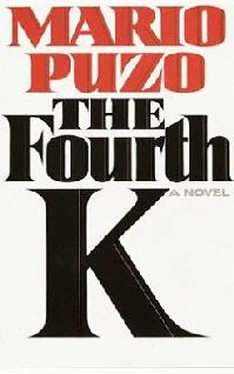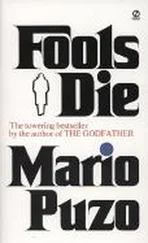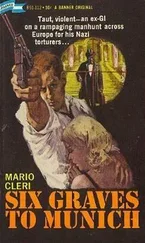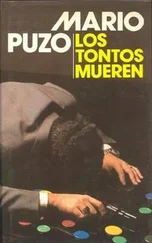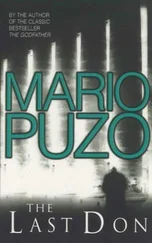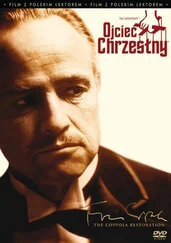Here Yabril paused to sip at his coffee cup. Then he went on with a calm dignity: "I have devoted my life to revolution against the established order, the authority I despise. I will die believing what I have done is right. And as you know, there is no moral law that exists forever."
Finally Yabril was exhausted and stretched back in his chair, arms appearing broken from the restraints. Kennedy had listened without any sign of disapproval. He did not make any counterargument. There was a long silence and finally Kennedy said, "I can't argue morality-basically, I've done what you have done. And as you say, it is easier to do when one does not personally bloody his hands. But again as you say, I act from a core of social authority, not out of my own personal animosity."
Yabril interrupted him. "That is not correct. Congress did not approve your actions; neither did your Cabinet officers. Essentially you acted as I did, on your own personal authority. You are my fellow terrorist."
Kennedy said, "But the people of my country, the electorate, approve."
"The mob," Yabril said. "They always approve. They refuse to foresee the dangers of such actions. What you did was wrong politically and morally.
You acted on a desire for personal vengeance." Yabril smiled. "And I thought you would be above such an action. So much for morality."
Kennedy was silent for a time as if giving careful consideration to his answer. Then he said, "I hope you're wrong, time will tell. I want to thank you for speaking to me so frankly, especially since I understand you refused to cooperate in former interrogations. You know, of course, that the best law firm in the United States has been retained for you by the Sultan of Sherhaben and shortly they will be permitted to consult with you on your defense."
Kennedy smiled and rose to leave the room. He was almost at the door when it swung open. Then as he was about to walk through it he heard Yabril's voice. Yabril had struggled to his feet despite his restraints and fought to keep his balance. He was erect when he said, "Mr. President." Kennedy turned to face him.
Yabril lifted his arms slowly, resting them crookedly under the nylon and wire jacket. "Mr. President," he said again, "you do not deceive me. I know I will never see or talk to my lawyers."
Christian had interposed his body between the two men and Jefferson was by Kennedy's side.
Kennedy gave Yabril a cold smile. "You have my personal guarantee that you will see and talk to your lawyers," he said, and walked out of the room.
At that moment Christian Klee felt an anguish close to nausea. He had always believed he knew Francis Kennedy but now he realized he did not.
For in one clear moment he had seen a look of pure hatred on Kennedy's face that was alien to everything in his character.
WHEN FRANCO SEBBEDICCIO was a little boy in Sicily he had chosen the side of law and order not only because it seemed the stronger side but because he loved the sweet consolation of living under strict rules of authority.
The Mafia had been too impressionistic, the world of commerce too dicey, and so he had become a policeman and thirty years later was the head of the antiterrorist division of all Italy.
He now had under arrest the assassin of the Pope, a young Italian of good family named Armando Giangi, code-named Romeo. The code name irritated
Sebbediccio intensely. Sebbediccio had incarcerated Romeo in the deepest cells of his Roman prison.
Under surveillance was Rita Fallicia, whose code name was Annee. She had been easy to track down because she had been a troublemaker since her teens, a firebrand at the university, a pugnacious leader of demonstrations and linked to the abduction of a leading banker of Milan.
The evidence had come flooding in. The safe houses had been cleaned by the terrorist cadres, but those poor bastards had no way of knowing the scientific resources of a national police organization. There was a towel with traces of semen that identified Romeo. One of the captured men had given evidence under severe interrogation. But Sebbediccio had not arrested Annee. She was to remain free.
Franco Sebbediccio worried that the trial of these guilty parties would glorify the Pope's murder and that they would become heroes and spend their prison sentences without too much discomfort. Italy did not have a death penalty, so they could receive only life imprisonment, which was a joke. With all the reduction of time for good behavior and the different conditions for amnesties they would be set free at a comparatively young age.
It would have been different if Sebbediccio could have conducted the interrogation of Romeo in a more serious fashion. But because this scoundrel had killed a Pope, his rights had become a cause in the Western world. There were protesters and human rights groups from Scandinavia and England and even letters from America. All these proclaimed that the two murderers must be handled humanely, not subjected to torture, not ill treated in any way. And orders had come down from the top: Don't disgrace Italian justice with anything that might offend the left-wing parties in Italy. Kid gloves.
But he, Franco Sebbediccio, would cut through all the nonsense and send a message to the terrorists. Franco Sebbediccio was determined that this Romeo, this Armando Giangi, would commit suicide.
Romeo had spent his months in prison weaving a romantic dream. Alone in his cell he had chosen to fall in love with the American girl, Dorothea. He remembered her waiting for him at the airport, the tender scar on her chin.
In his reveries, she seemed so beautiful, so kind. He tried to remember their conversation that last night he spent with her in the Hamptons. Now in his memory, it seemed to him that she had loved him. That her every gesture had dared him to declare his desire so that she could show her love. Here membered how she sat, so gracefully, so invitingly. How her eyes stared at him, great dark pools of blue, her white skin suffused with blushes. And now he cursed his timidity. He had never touched that skin. He remembered the long slim legs and imposed them around his neck. He imagined the kisses he would rain on her hair, her eyes, the length of her lithe body.
And then Romeo dreamed of how she stood in the sunlight, draped in chains, staring at him in reproach and despair. He weaved fantasies of the future.
She would serve only a short term in prison. She would be waiting for him.
And he would be freed. By amnesty or by the trading of hostages, perhaps by pure Christian mercy. And then he would find her.
There were nights when he despaired and thought of Yabril's treachery. The murder of Theresa Kennedy had never been in the plan, and he believed in his heart that he would never have consented to such an act. He felt a disgust for Yabril, for his own beliefs, for his own life. Sometimes he would weep quietly in the darkness. Then he would console himself and lose himself in his fantasies of Dorothea. It was false, he knew. It was a weakness, he knew, but he could not help himself.
Romeo in his bare cell received Franco Sebbediccio with a sardonic grin.
He could see the hatred in this old man's peasant eyes, could sense his bewilderment that a person from a good family who enjoyed a pleasant, luxurious life could become a revolutionary. He was also aware that Sebbediccio was frustrated that the international public watch restrained him from treating his prisoner as brutally as he might wish.
Sebbediccio had himself locked in with the prisoner, the two of them alone with two guards and an observer from the governor's office watching but unable to hear from right outside the door. It was almost as if the burly older man were inviting some sort of attack. But Romeo knew that it was simply that the older man had confidence in the authority of his position. Romeo had a contempt for this kind of man, rooted in law and order, handcuffed by his beliefs and bourgeois moral standards. Therefore he was extremely surprised when Sebbediccio said to him casually, but in a very low voice, "Giangi, you are going to make life easier for every one. You are going to commit suicide."
Читать дальше
